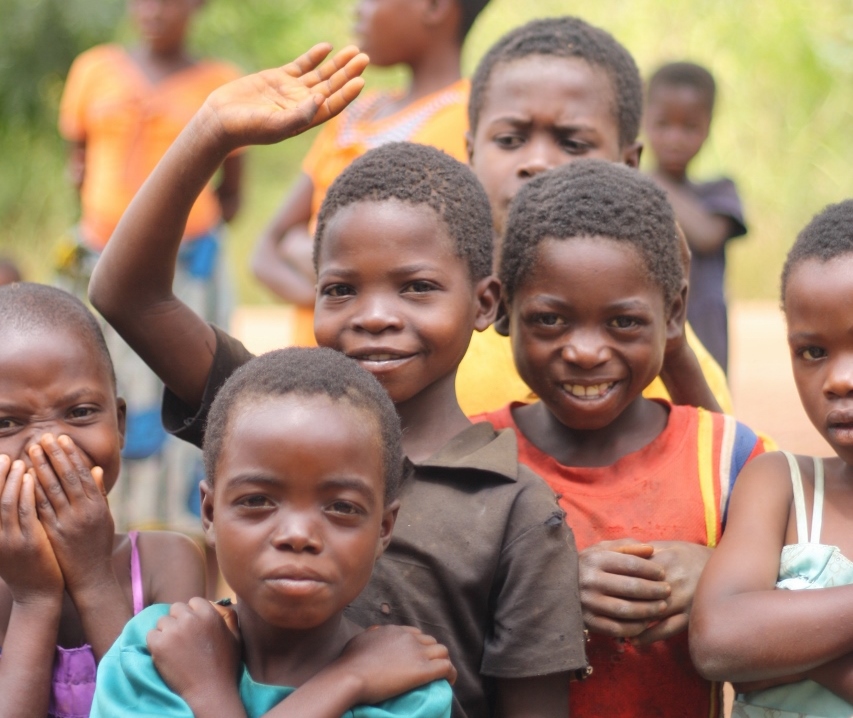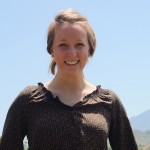Sylvie Somerville, program advisor for HOPE’s Malawi savings and credit association program, recently wrote a reflection on her experience in Malawi for the Institute for Faith, Work & Economics blog. Reposted here with permission.
“Give me money! Give me money!”
I was on my first mountain bike ride through Malawi, high above the capital city of Lilongwe, traversing dry, dusty hills and a winter landscape dotted with villages.
I’ve been distressed by the absolute poverty of these villages many times, but this repeated cry from these children hit me particularly hard. They don’t speak English in these villages, so this is likely one of the only English phrases the kids know.
Cute, bright-eyed children. I wanted to find this moment endearing, being chased through Malawian villages by swarms of little children. This should have been a classic Instagram opportunity.
But it broke my heart.
What’s wrong with the poverty mindset?
The international aid community has taught children throughout this small southeast African nation that they have nothing and need handouts. In doing so, we have stripped them of their God-given dignity and have told them that aid is their only ticket to survival.
A recent BBC video titled “Charity Clothes Threaten Malawi’s Cotton Industry” captures the economic explanation for this problem. An influx of Western-donated clothes are hitting Malawi’s markets, glutting the clothing supply, which is driving demand and prices down for local clothing sellers and tailors. Malawians turn to the donated clothes because they are cheap.
Rather than being a boon for the country, the cheap donated clothes are destroying local markets. The cotton industry has been one of Malawi’s largest, but these factory workers, along with traditional tailors, are facing a serious employment threat. This industry is now on the brink of collapse.
Why encourage local industry when it will never be profitable? Why work hard if this is your market environment? Free always wins. You can get a better deal by waiting for a handout or a cheap donation. Brian Fikkert described this tragedy in his landmark book, When Helping Hurts. Bob Lupton called it Toxic Charity. Dambisa Moyo called it Dead Aid.
Breaking out of the poverty mindset
The mission of HOPE International’s savings and credit programs really boils down to one main goal: shifting mentalities. Yes, we provide vital financial services and quality Bible study and discipleship materials. But these things have little effect without first getting to the root of the problem.
A “poverty mindset” destroys self-worth and creates dependent cultures. But through the partnership of the churches of Malawi, we encourage a new mentality. We are all made in the image of a holy, perfect, and good God. To be made in His image is to be capable, dignified, valuable, and endowed with gifts and skills that we are intended to use to their full potential.
And this reaches beyond identity—we are made in God’s image and we have been given much. To see ourselves as children of God is also to see ourselves as givers rather than receivers, as givers who can unite together—in churches, in communities, in districts—to work hard to overcome the crippling effects of decades of aid dependence.
In Malawi, I’ve seen this light in people’s faces as they grasp the life-changing truth of who they are and what they have to offer. At a recent National Women’s Conference for a Pentecostal denomination throughout Malawi and Zambia, I shared with hundreds of women about this need to break out of a destructive poverty mindset.
These leaders are getting it: “Tell them again, tell them again about the mentality shift!” as Martha, head of the women’s ministry, urged me.
It’s going to transform this country, I believe, one small, bright-eyed child at a time. I’m not going to stop riding my bike through those Malawian villages. One day these kids will wave and say hello with the confident smile that reflects knowledge of their true identity—beautiful, bright-eyed, and capable children created in God’s image.
Sylvie grew up in Gaithersburg, MD, and graduated from the University of Richmond in May 2011 with a B.S. in mathematical economics and a B.A. in classical civilization. Sylvie worked with HOPE International in India and in Lancaster, PA, before moving to Lilongwe, Malawi, to work as program advisor for HOPE’s Malawi savings and credit association program.
Reprinted with permission from Institute for Faith, Work & Economics™.

















